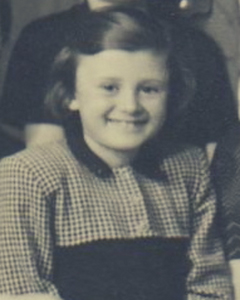 Vula was born in Greece to refugee parents. At the age of fifteen, she immigrated to the United States. As she made her way in a new land, she faced many challenges. This is the story of Vula Rushdoony and how she came to care for the poor and needy in the Balkan Peninsula of Southeastern Europe.
Vula was born in Greece to refugee parents. At the age of fifteen, she immigrated to the United States. As she made her way in a new land, she faced many challenges. This is the story of Vula Rushdoony and how she came to care for the poor and needy in the Balkan Peninsula of Southeastern Europe.
Vula was born on August 6, 1939, to Isaac and Anthi Pavlides. Both of her parents had survived the Turkish death marches of 1923. They came to Greece as teenagers and married in 1938. When Vula was only five years old, her father was killed in the Greek civil war, leaving her mother to care for two young children along with Vula’s grandmother.
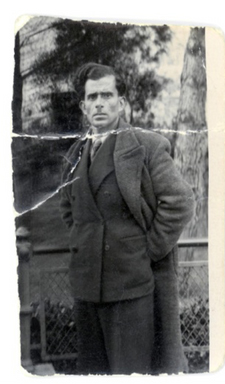 They were extremely poor—earning a mere $200 a year working in tobacco fields and doing odd jobs. They lived in a two-room house without running water or electricity. Family members tried to help them out. On her way to school, Vula often stopped at her aunt’s house and ask for a piece of bread and some garlic so she wouldn’t be hungry in class. One day a package of clothing came from America. The package included a dark blue dress just her size. She proudly wore it to school thinking it could serve as her uniform, but she was immediately sent home because the school insisted uniforms be in black.
They were extremely poor—earning a mere $200 a year working in tobacco fields and doing odd jobs. They lived in a two-room house without running water or electricity. Family members tried to help them out. On her way to school, Vula often stopped at her aunt’s house and ask for a piece of bread and some garlic so she wouldn’t be hungry in class. One day a package of clothing came from America. The package included a dark blue dress just her size. She proudly wore it to school thinking it could serve as her uniform, but she was immediately sent home because the school insisted uniforms be in black.
Things got so bad that Vula’s mother decided that one of her children should immigrate to America where there was an opportunity to work and have a better life. Vula was fifteen by then and the idea of going to America, especially the opportunity to go to school, was very appealing to her. And so, she came to America with $50 in her pocket, an old cardboard suitcase with a few clothes and not a word of English. It was 1955 and she traveled to New York for 13 days on a ship and another 4 days by train to San Francisco. She lived with relatives she had never met.
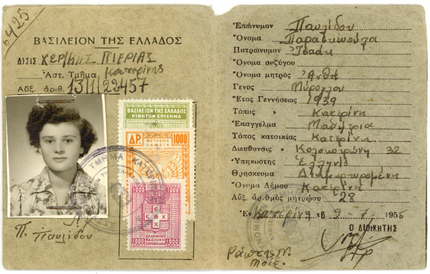 Vula says, “Little did I know as a 15-year-old that Ephesians 2:8-10 would change my life totally 35 years later. ‘For it is by grace you have been saved, through faith–and this not from yourselves, it is the gift of God–not by works, so that no one can boast. For we are God’s workmanship, created in Christ Jesus to do good works, which God prepared in advance for us to do. ’”
Vula says, “Little did I know as a 15-year-old that Ephesians 2:8-10 would change my life totally 35 years later. ‘For it is by grace you have been saved, through faith–and this not from yourselves, it is the gift of God–not by works, so that no one can boast. For we are God’s workmanship, created in Christ Jesus to do good works, which God prepared in advance for us to do. ’”
Learning to live in a foreign country had its challenges. Vula spent the first six months attending a continuation school filled with high school delinquents. Once she learned the basics of the English language, she transferred to an all-girls’ Catholic high school. She would often stay up until 1:00 in the morning to finish her homework.
Vula was expected to perform at the same standards as her fellow students and was often teased by them. In fact, after spending hours writing an essay with the help of her Greek/English dictionary, translating words back and forth, one of the nuns decided to have a little fun at Vula’ s expense. She read her essay to the class. Vula’s poor grammar had the students in stitches. She was completely humiliated. But she worked hard and gained the respect of her classmates. In her junior year, she was elected treasurer of the student body. Her friends came up with this campaign slogan, “If you want your moola, vote for Vula!”
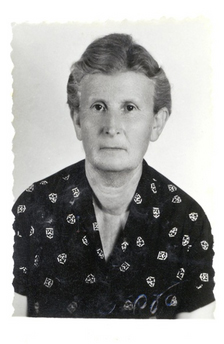
Vula says that her dreams died from day one because things were not the way she thought they would be for her. And so, she lived and worked and helped her mother financially who remained in Greece. Seven years later, she brought her mother to live with her in Oakland, CA. “Those first 26 years were difficult,” says Vula, “but the Lord has blessed the subsequent years and has by far made up for all that was missing at first. He made beauty from ashes and gave me a life full of Him and His people.” The year was 1989 and Vula’s husband, Haig Rushdoony, retired which gave her the chance to take an early retirement at age 50.
The first few weeks were fun, but then it got a little boring. “As mature Christians we knew that it was not right for us to waste the rest of our lives on fun and games alone. So, one day we knelt in our family room and earnestly and sincerely asked the Lord to use us if He wanted to. We told Him that we were willing to obey and listen to His voice and go and do whatever He had planned for us.” Vula’s life verse had been Joshua 1:5, “I will never leave you nor forsake you, ” but that day the Lord gave her the verses in Ephesians. And so they claimed His plan for their lives—a plan that has led them to serve for over 35 years in the mission field. “We knew we had no theological background but we both loved the Lord and His word and wanted to share Him with those who didn’t know Him.”
That first summer of being retired, they visited Vula’s homeland, Greece. While on this visit, a missionary couple asked Haig and Vula to go with them to Bulgaria. It was there in a little village that Vula saw firsthand the multitude of destitute and hungry children. Her heart broke for them. On that day, she decided that she was going to dedicate the rest of her life to helping the poor. “After all, many years ago, I was one of those unfortunate kids, poor and hungry, and God took care of me. Now it was my turn to take care of others.”
God saw the sincerity of their hearts and opened the way for them. Through the support of their church, family and friends, they started their ministry calling it The Macedonian Outreach. They took the name from Acts 16:9 where the Apostle Paul had a vision of a man of Macedonia standing and begging him, “Come over to Macedonia and help us. ” Vula explains, “It was very appropriate to call it Macedonian Outreach since I was born and raised in Greek Macedonia.”
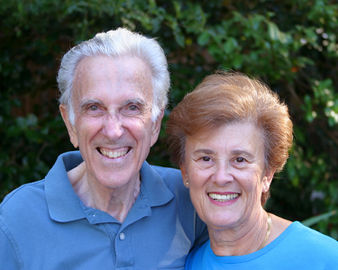 Now, so many years later, Vula looks back and marvels at the faithfulness of God. In 1989, they started with a budget of $2,000, and today God has blessed them with an unimaginable amount. The Macedonian Outreach focuses its efforts in Albania, Bulgaria, Greece, Romania, and the former Yugoslavian states of Bosnia-Herzegovina, the Former Yugoslavian Republic of Macedonia (FYROM) and Serbia. The organization meets the spiritual, educational, medical, and physical needs of refugees, orphans, and the elderly. With God’ s help over 30 tons of clothing is shipped every year. The Macedonian Outreach sponsors over 200 children. The educational program has produced Roma (gypsy) village pastors, youth workers, lawyers, teachers and others. Thus far Bibles in 16 languages and the Jesus film in 13 languages have been distributed throughout the Balkans. The Macedonian Outreach has been able to bring many children to the U.S and other European countries for heart surgeries. Among them were twelve-year-old Maria and eight-year-old Goren, of Serbia, who came to the Arkansas Children’s Hospital where they received much needed heart surgery.
Now, so many years later, Vula looks back and marvels at the faithfulness of God. In 1989, they started with a budget of $2,000, and today God has blessed them with an unimaginable amount. The Macedonian Outreach focuses its efforts in Albania, Bulgaria, Greece, Romania, and the former Yugoslavian states of Bosnia-Herzegovina, the Former Yugoslavian Republic of Macedonia (FYROM) and Serbia. The organization meets the spiritual, educational, medical, and physical needs of refugees, orphans, and the elderly. With God’ s help over 30 tons of clothing is shipped every year. The Macedonian Outreach sponsors over 200 children. The educational program has produced Roma (gypsy) village pastors, youth workers, lawyers, teachers and others. Thus far Bibles in 16 languages and the Jesus film in 13 languages have been distributed throughout the Balkans. The Macedonian Outreach has been able to bring many children to the U.S and other European countries for heart surgeries. Among them were twelve-year-old Maria and eight-year-old Goren, of Serbia, who came to the Arkansas Children’s Hospital where they received much needed heart surgery.
The loss of her father in the war, the poverty she experienced as a child, and the challenges of immigrating to a foreign country shaped Vula into a woman of compassion. A woman of compassion God could use to reach the lost and suffering in lands not far from her own homeland. “My mind cannot hold all that God has accomplished in these thirty five years through The Macedonian Outreach. Only eternity will show the total results.” To quote Vula herself, “The Lord made beauty from ashes.”
